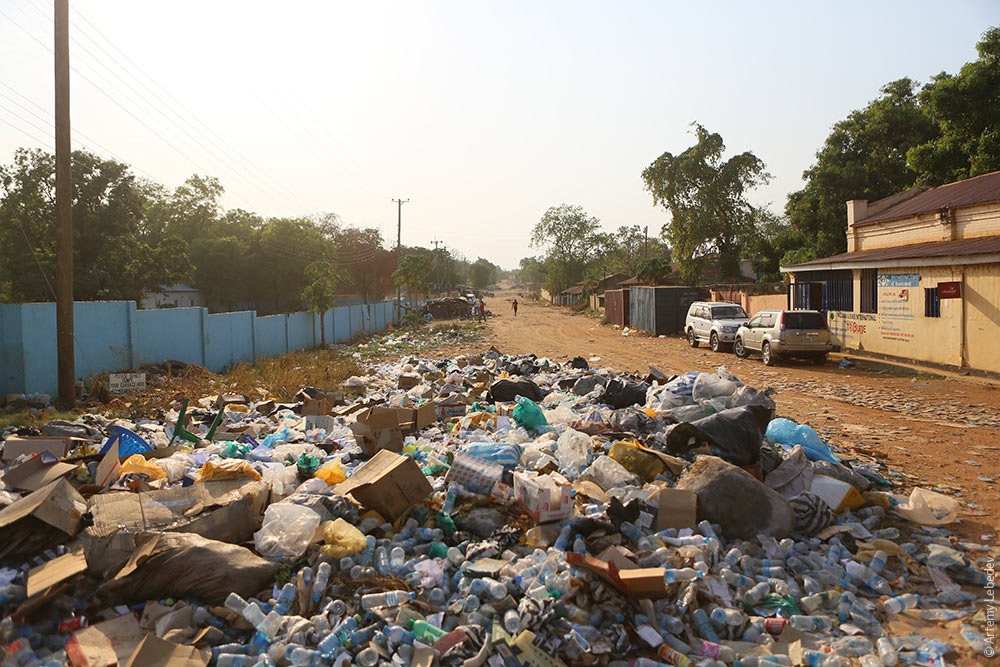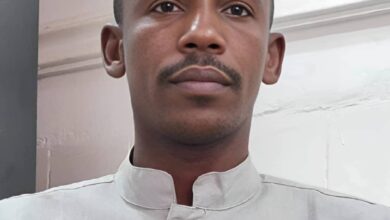
What is the relation between United Nations and garbage in Khartoum?
This puzzle came out of a meeting between the Governor of Khartoum and the Head of UNITAMS, Volker Perthes

Mekki ElMograbi
These days, citizens of Khartoum are wondering about the relation between the United Nations and the piles of garbage in the city.
This puzzle came out after the news of the meeting between the Governor of Khartoum, Ayman NIMIR, and the Head of the United Nations Integrated Transition Assistance Mission (UNITAMS), Volker PERTHES.
The news was reported in various ways, but one of them was that the governor asked the United Nations Representative with help on the issue of collecting and recycling garbage in Khartoum.
Whatever the real discussion that happened between the Governor and Mr. Volker was, people are discussing the version of the report that says: “the governor requested UNITAMS assistance to Khartoum state on the issue of garbage!”
There has not been any clarification from neither the governor’s office nor the UNITAMS itself.
Is it useful to read and discuss the details of the UNITAMS mandate or objectives in Sudan? Let us do that to find out where is the issue of garbage.
UNITAMS Objectives
- Assisting the political transition, progress towards democratic governance, protection and promotion of human rights, and sustainable peace.
- Supporting peace processes and implementation of future peace agreements.
- Assisting peacebuilding, civilian protection and rule of law, in particular in Darfur and the Two Areas.
- Supporting the mobilization of economic and development assistance and coordination of humanitarian assistance by ensuring an integrated approach with UN agencies, funds and programs and through collaboration with international financial institutions.
Still, it is very easy to find a relation between garbage and human rights and more specifically health and environment.
Human rights is a wide and big umbrella. It is easy to link anything with human rights.
I remember one of my friends from an African country who lives in a remote village that lacks basic services such as running electricity and clean drinking water.
Instead of serving his village, he went in another direction and found a great idea when he settled in the city. He established an organization dedicated to the “right to play” as one of the child’s rights.
He organized amazing programs for the residents in the city, received generous funds from private companies, especially toy importers, and launched events in big shopping centers.
Although his village needs basic services, he had chosen a shortcut to do an easy and comfortable job in human rights.
The question here to the governor of Khartoum: If the United Nations had not issued a decision to establish this mission in Sudan, what would he have done with the waste or garbage?
Another question to the head of UNITAMS, Mr. Volker Perthes: does the UN plan to manage and rule Sudan and to carry out the basic tasks of the Sudanese government, or does it wants to help the government in the democratic transition and major political issues?
The transitional government failed to establish the Transitional Legislative Council, but the head of the mission did not hold meetings with neither government nor the Council of Partners of the Transitional Period to discuss what the obstacles preventing the forming the Council were.
Sudanese political parties are mostly non-democratic parties. Some of them have failed to hold their general assemblies or conferences for a long time, and even those that have held their conferences did not do it in full transparency.
There are still protests from within the parties that there is dictatorship and totalitarianism within the parties that are claiming democracy and freedom.
Is it more important to help transform armed movements into political parties through launching programs and workshops for this purpose, as well as to benefit from African and international experiences in this matter, or is the most important thing now is to help Khartoum state in garbage collection?
The question appears again; why is there always a stronger focus on Khartoum and not on other regions and marginalized areas?
Does garbage cause a threat to the environment and human only in Khartoum?
I think that recycling waste or garbage in the Sudanese rural areas is much more important than in Khartoum because there is a big need to recycle waste and garbage in rural areas into biogas, doe to energy shortage being bigger in the countryside.
Mekki ElMograbi is a press writer on African affairs. He can be reached through his email (elmograbi@gmail.com) or his contact number +249912139350 (Whatsapp and Telegram)




